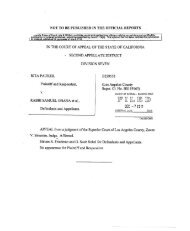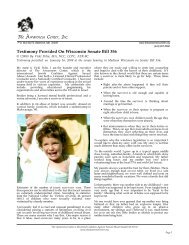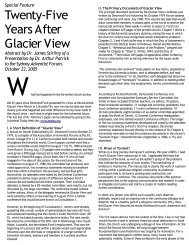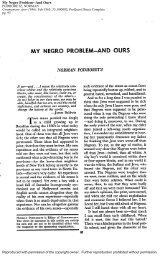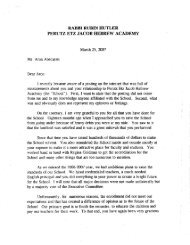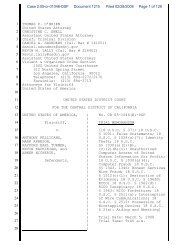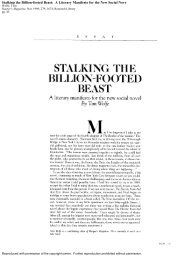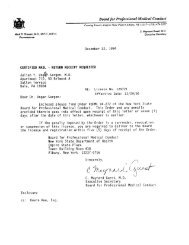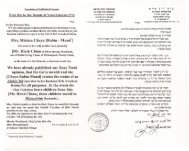Attorneys Steven Friedman - Luke Ford
Attorneys Steven Friedman - Luke Ford
Attorneys Steven Friedman - Luke Ford
Create successful ePaper yourself
Turn your PDF publications into a flip-book with our unique Google optimized e-Paper software.
1<br />
2<br />
3<br />
4<br />
egos of the three Rabbis from the first hearing, all disqualified by this Court. Finally, upon<br />
Defendants' proposal, a single arbitrator, Rabbi Shalom Tendler, was appointed. (See Exhibit<br />
A, extensive correspondence between Rabbi Union, (Administrator of the RCC and a<br />
disqualified prior arbitrator), Baruch Cohen, Plaintiffs counsel at the time, Benny Westreich,<br />
5<br />
Esq.<br />
(counsel for the RCC), and Sobel, concerning the constitution and selection of the second<br />
6<br />
7<br />
8<br />
9<br />
10<br />
panel of arbitrators, including objections, "disclosures" made, and resolution. The extensive<br />
correspondence is copied not only to illuminate the selection and "disclosure" process, but also<br />
to demonstrate the alarming degree of cooperation between the RCC and Plaintiff, and the<br />
alarming degree of the RCC's prejudice against Defendants herein.<br />
The arbitration hearing was held on January 13,2010. Unfortunately this arbitrator was<br />
11<br />
also untrained in the law and unfamiliar with the law.<br />
The request of the Defendant to record<br />
12<br />
the proceedings was denied by the arbitrator.<br />
The request to determine the substantive law<br />
13<br />
which would be applied by the arbitrator,<br />
California or Jewish law ("Halacha"), was denied.<br />
14<br />
15<br />
16<br />
17<br />
18<br />
And in a strange twist, the arbitrator refused to allow licensed counsel to appear and argue<br />
issues of Jewish Law for the Defendant entity.<br />
Prior to the commencement of arbitration, Defendants' two counsel submitted to the<br />
arbitrator, and copied to Plaintiff, two trial briefs: one trial brief in English addressing the facts<br />
and California law (attached hereto as Exhibit B), and a separate two page brief entirely in<br />
19<br />
Hebrew (attached as Exhibit C), addressing issues of Jewish law.1<br />
Both of Defendants' counsel<br />
20<br />
arrived timely for the arbitration.<br />
Immediately prior to the hearing, the arbitrator appeared in the<br />
21<br />
lobby waiting area of the RCC offices and invited each side to enter the conference room with a<br />
12<br />
single advocate of his/her choice.<br />
Mr. Sobel accompanied Defendant Rabbi Ohana into the<br />
»3<br />
room.<br />
Once inside the room behind closed doors, the arbitrator announced that each party<br />
14<br />
would be allowed to have one, and only one, attorney or advisor attend the hearing.<br />
All others<br />
;5<br />
6<br />
were barred.<br />
Mr. Sobel explained that each of defense counsel was assigned and prepared to<br />
7<br />
8<br />
* In the Beit Din Rabbinical courts, briefs are commonly presented in Hebrew, and the proceedings<br />
are often conducted in Hebrew or Yiddish, according to the preferences of the participants, as is<br />
provided in the Agreement to Binding Arbitration herein.<br />
4<br />
DEFENDANTS' OPPOSITION TO PETITION TO CONFIRM ARBITRATION AWARD; REQUEST TO VACATE AWARD AND TO<br />
ENTER JUDGMENT IN FAVOR OF DEFENDANTS; MEMORANDUM OF POINTS AND AUTHORITIES; DECLARATIONS



